
Dental Implants — Colorado Springs, CO
New Roots for
New Teeth

Tooth loss can occur for a variety of reasons, including gum disease, trauma, infection, and plain old wear and tear. No matter how you came to have missing teeth, finding a secure replacement soon is of the utmost importance. Tooth loss is a serious issue that can have far-reaching effects for your oral and overall health. At Rocky Mountain Periodontal Specialists, our team of periodontists can replace missing teeth and make your smile whole again with dental implants in Colorado Springs, CO. Give us a call today to see if this state-of-the-art tooth replacement solution is right for you!
Why Choose Rocky Mountain Periodontal Specialists For Dental Implants?
- Team of 3 Highly Experienced Periodontal Experts
- State-of-the-Art Techniques and Technology
- Dental Insurance Welcome and Flexible Financing Available
What Are Dental Implants?

Unlike other tooth replacement options that only restore those parts of the smile visible above the gumline, dental implants restore both the root structure and the crowns of missing teeth. This provides the optimal level of stability for dental restorations and maintains the natural gum tissue volume and jawbone density, ensuring patients retain their optimal level of oral health.
Dental implants themselves are small posts that are typically made from biocompatible titanium, a material that fully integrates (grows together with) your jawbone. Dr. Haradon or Dr. Lackler can surgically insert one or more dental implants beneath the gums and into the jaw, where they naturally fuse with the supportive structures, mimicking the lost tooth roots. The dental implants are strategically positioned to provide support for a replacement tooth or teeth that are securely affixed to special connecting abutments on the top of the implants. Depending on how many teeth you’re missing, this could be a crown, bridge, or denture. The end result is a smile that looks, feels, and functions just like natural.
Why Should I Visit a Periodontist for Dental Implants?

Dr. Haradon and Dr. Lackler are specialists known as periodontists. Periodontists are dentists who have completed years of advanced training in order to specialize in treatments for the supportive structures that surround teeth. For this reason, they are the ideal dental specialists to place implants. They understand better than any other dental practitioners how to safely and effectively place dental implants to ensure a smooth, successful, and comfortable procedure. When you come to Rocky Mountain Periodontal Specialists for dental implants, you can rest assured that your smile is in good hands!
The Dental Implant Process

Your treatment process will include various phases to ensure the long-term success of your new smile. Each phase plays a crucial role in ensuring the best longevity and functionality of your tooth replacement. Our periodontists will explain the process to you in great detail when you arrive for your consultation, but we’re happy to break down the most important steps of your dental implant placement ahead of time below. If you have other questions or concerns, give us a call or have them ready when you arrive for your visit.
Initial Dental Implant Consultation

At your first visit, our periodontists will examine your mouth and determine if you are eligible to receive dental implants. For example, they’ll confirm the current condition of your bone tissue and make sure no other dental concerns are present, such as gum disease or tooth decay. These issues will need to be addressed before dental implant treatment can occur. We’ll also confirm how many teeth you are missing and capture X-rays as part of your treatment planning.
Dental Implant Surgery

While dental implants are surgically placed, the procedure itself is minimally invasive. After administering local anesthetic and any sedation (if requested), we make a small incision in the gum line and place the implant(s) carefully into the jawbone at pre-determined areas. Following the placement, a protective cap is placed over the implant to speed the healing process and shape the gum tissue. Once the implant is placed, we’ll stitch the gum tissue closed so that it can begin to heal. The more dental implants you need to have placed, the longer you can expect your treatment to be.
Dental Implant Osseointegration & Abutment

Dental implants are made from titanium, which is biocompatible with bone tissue. This means they can integrate with organic structures inside the mouth without fear of the body rejecting them. Once the implant fuses with the jawbone, a process that takes about four to six months to complete, the protective cap is removed and an abutment is attached to the implant. Abutments are tiny metal connectors that provide stability to implant restorations. Since the gum tissue needs to be reopened so the abutment can be placed, an additional few weeks of healing are needed before you can have the permanent restoration attached.
Delivery of Dental Implant Restoration(s)

Once your tooth replacement prosthetic is prepared, whether it be a dental implant crown, bridge, or denture, we’ll anchor the replacement tooth or teeth to the implant by attaching the restoration to the abutments. This restoration is designed to not only look incredibly natural, but feel natural as well, especially when chewing your favorite foods. If any adjustments need to be made to ensure the restoration fits exactly as intended, we’ll make sure to do so before sending you on your way.
Benefits of Dental Implants

If you are missing teeth—one, a few, or all the teeth along an entire arch—then replacement is critical not only to your oral health, but your general health, too. Just one missing tooth can lead to other oral problems including shifting teeth, gum disease, and even further tooth loss. In addition, tooth loss is frequently connected to malnutrition—eating a balanced diet can be made difficult because of missing teeth—as well as reduced self-confidence in both social and professional scenarios. Thus, the need to replace missing teeth becomes imperative.
Dental implants are quickly becoming the most popular tooth replacement option, and it’s easy to see why. They have the potential to dramatically improve your appearance, health, confidence, and overall quality of life. Keep reading to learn more about some of the most popular reasons why our patients love their dental implants.
Day-to-Day Benefits

- Outstanding reliability and strength: Dental implants are designed to function just like natural teeth and restore 80% or more of your natural biting force. This means you can eat all the apples, steak, and nuts that you want without any worry or discomfort.
- Beautifully lifelike aesthetics. Thanks to their unique placement and high-quality materials, dental implants area virtually indistinguishable from natural teeth in appearance.
- A rock-solid foundation for optimal confidence: Dental implants are anchored in bone, so there’s no chance of them shifting, clicking, or popping out of place. No matter how many teeth you’re replacing, your dental implants should never feel loose or uncomfortable. You can feel absolutely confident that your new smile will stay firmly in place as you talk, eat, and laugh.
Health Benefits

- The healthiest tooth replacement option available: They fit precisely into the place of missing teeth. They don’t require altering remaining teeth to be placed, nor do they wear down healthy enamel or cause gum irritation like dental bridge, partials, or full dentures.
- Prevent jawbone loss: Jawbone deterioration often occurs after tooth loss. Without tooth roots to nourish it, the jawbone will weaken and be reabsorbed into the body. Dental implants provide stimulation and much-needed nutrients to keep it strong and healthy.
- Preserved healthy facial features. By preventing jawbone deterioration, dental implants help patients maintain a natural, youthful, and healthy facial appearance. Without a root or implant to stimulate healthy new bone growth, a sagging and aged look in the facial features develops.
Long-Term Benefits

- The potential to last for decades: Dental implants can easily last for 30 years or more. With excellent oral hygiene and implant maintenance, many people enjoy a lifetime of benefits from dental implants.
- Astonishing success rates: Dental implants are phenomenally successful. In fact, they boast an amazing success rate of over 95% even 10 years after placement.
- They pay for themselves: While dental implants have a higher upfront cost than dentures or dental bridges, they can pay for themselves over time. On the other hand, traditional tooth replacement options need regular repairs, replacements, special care, and new cleaning products. Dental implants don’t need any of these factors and can easily save you thousands of dollars over the years.
Who Dental Implants Can Help

Both Dr. Haradon and Dr. Lackler are experts at restoring smiles with dental implants. Your periodontist in Colorado Springs will evaluate your oral health and how many teeth need to be replaced to create a customized treatment plan for your unique smile. Depending on the severity of your tooth loss, there is a type of dental implant that is right for you! Lifelike dental implants can be used to replace single or multiple missing teeth, as well as to secure implant dentures.
Who Is a Good Candidate for Dental Implants?

A good candidate for dental implants will typically need to have three things. First, healthy gums are critical. Any signs of gum disease will need to be treated and reversed before the dental implant process can begin. Secondly, sufficient jawbone is a requirement. Because an implant is set in the jawbone, a recipient must have enough bone mass to firmly anchor the implanted post. In some patients, bone can be rebuilt with a bone grafting, so a dental implant may still be a possibility. Finally, proper oral hygiene is critical once you’ve received an implant. Daily brushing and flossing as well as regular dental checkups will go a long way to maintaining the integrity of the implants as well as the health of surrounding teeth and gums.
Many adult patients are eligible for dental implants. If your tooth loss is recent and you are in good oral and overall health, chances are good that you can get dental implants. However, the only way to know for sure whether or not you are eligible for dental implants is to schedule an appointment with your implant dentist. If you are a good candidate, we can begin planning your treatment around how many teeth you’re missing.
Missing 1 Tooth

A single dental implant post can be surgically placed into the jawbone where the missing tooth once was. An abutment is then attached to the post to fasten a custom-made dental crown in place above the gumline. This is a much healthier alternative to a traditional dental bridge since it doesn’t require altering any healthy teeth.
Missing Multiple Teeth

A dental bridge strings together a row of replacement teeth. Instead of placing dental crowns on the adjacent teeth to hold the bridge in place like a traditional bridge, an average of 1 or 2 implant posts anchored into your jawbone can support an implant bridge.
Partial dentures fill gaps located anywhere in the smile when there are still several natural teeth in the gumline. Partial dentures not only complete the smile and make day-to-day life easier, but they also keep the remaining teeth from drifting out of alignment. While traditional partials use metal clasps around the natural teeth to stay in place, we can anchor a partial onto several dental implants for optimal results.
Missing All Teeth

Just like the name suggests, a full (or complete) implant denture replaces an entire row of missing teeth in the upper or lower jaw. It may be fixed or removable, depending on your needs, budget, and personal preference. Rather than having to place an individual dental implant to support each tooth, your periodontist can use a strategic number of dental implants to support a complete row. In cases of total tooth loss, dental implants provide a wonderful solution that promotes oral health and overall wellness. Implant dentures don’t require adhesives, won’t slip around, and offer the maximum in stability for your smile.
Understanding the Cost of Dental Implants

It is no secret dental implants in Colorado Springs cost more than traditional treatments, like dentures; however, they are worth every extra penny. Although they cost more upfront, dental implants are more cost-effective long-term because you never need to worry about having them replaced. They offer over a 95% success rate to last for several years. When determining how much you can expect to pay, there are several factors that influence the price. We provide you with an individualized estimate and discuss your payment options to keep your new smile affordable. Read on to learn more about budgeting for the cost of dental implants in Colorado Springs, CO.
Are Dental Implants Worth the Investment?

Dental implants allow you to invest in your quality of life and your oral health to reduce your long-term dental expenses. The implant posts mimic your tooth roots to stimulate your jawbone. This stops dental drift to reduce your risk of tooth decay, gum disease, and additional tooth loss. Not to mention, dental implants are proven to last for several decades. You will not need to worry about having them replaced.
Does My Dental Insurance Cover Dental Implants?

Your dental insurance will likely not cover the entire cost of dental implant treatment; however, it may pay for certain aspects of it depending on your specific policy. After paying your annual deductible, your insurance may pay for 50% to 80% of specific parts of your treatment until you reach your yearly limit, like the restorations or any necessary preliminary treatments. We work on your behalf with your insurance company to reduce the amount you need to pay out-of-pocket. We accept a variety of payment options to cover any remaining balance to keep your new smile affordable.
Advanced Dental Implant Procedures
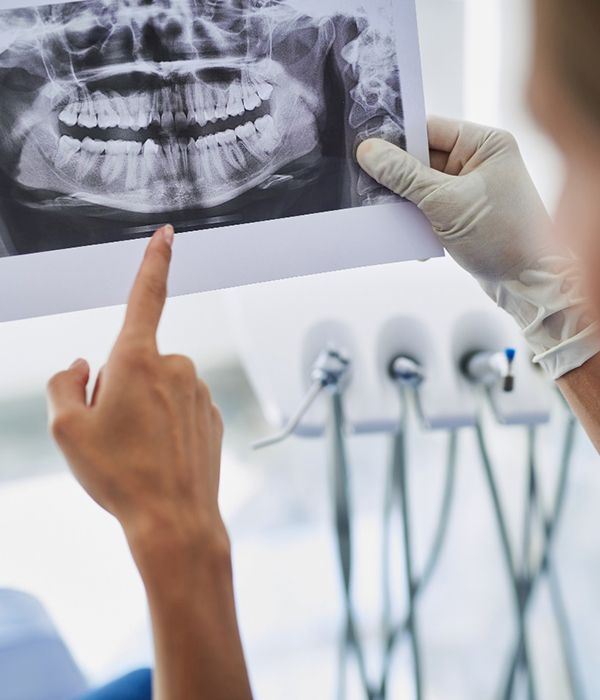
Having a strong, healthy jawbone is essential for getting dental implants. Unfortunately, there are various factors that can impact the density of your jawbone, such as periodontal disease and tooth loss. Thankfully, even if your jawbone isn’t dense enough to support dental implants right now, we may be able to change that with a bone graft or other advanced dental implant procedure! During your initial consultation, we’ll be able to tell if you need a bone graft before getting dental implants.
Bone Grafting
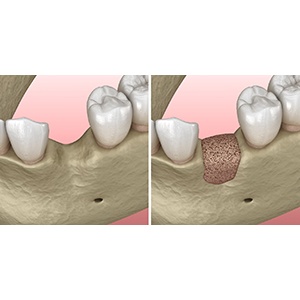
Bone grafting is a surgical procedure that adds density to the size and shape of your alveolar ridge. You can lose bone in the gum ridge after you have lost a tooth, whether from an extraction, trauma, or infection.
After you lose a tooth, your bone deteriorates if it is not replaced with a dental implant because it is no longer stimulated by the root. If you lost the tooth some time ago, your bone will have shrunk a great deal. As a result, your remaining teeth may no longer have the support they need to stay in place. In addition, you may not be able to replace your lost tooth with a dental implant because there is not enough bone to support it. Bone grafting replenishes the lost bone to rebuild a healthy, functional smile.
If you are ready to replace your missing teeth with dental implants in Colorado Springs, you may require bone grafting before placing your posts. After an initial consultation and reviewing a CT scan of your oral structures, we pinpoint the area of your jaw that needs to be strengthened. While under sedation or anesthesia, your gum tissue is opened to expose your jawbone. A small piece of bone that was extracted from another area in your mouth or from a donor is transferred to the treatment site. Your tissue is sutured closed, and the healing process begins.
Dental Implant Technology
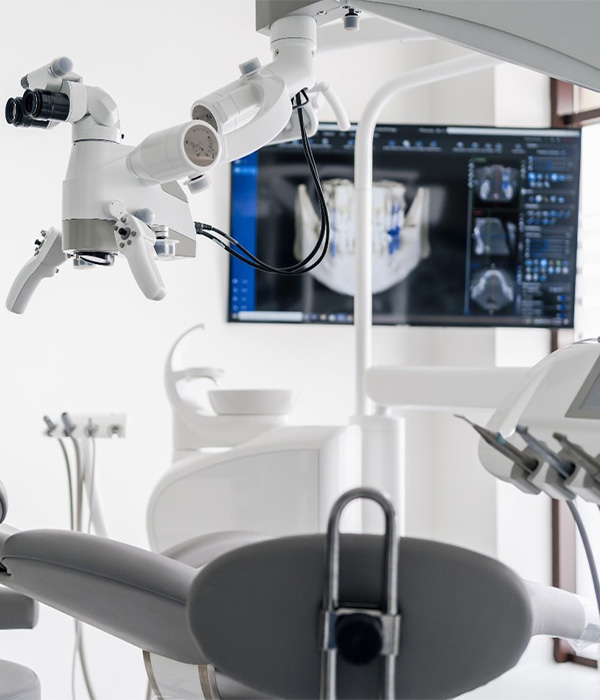
At Rocky Mountain Periodontal Specialists, we’re committed to providing our patients with the highest quality of care, which is why we utilize the latest dental implant technology in Colorado Springs. To ensure a high treatment success rate, we conduct diagnostic imaging with our 3D cone beam scanner, craft a guide to ensure that the implants are placed in an optimal position within the mouth, and even use an antibacterial coating to avoid infection after your surgery. We invite you to read a little more about these instruments below so you’re aware of the overall impact advanced techniques and technology can have on your dental implant treatment and overall experience with us.
3D Cone Beam Imaging
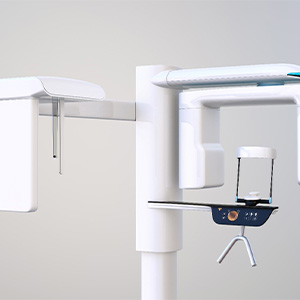
Computed tomography (CT) is a special type of X-ray system that is paired with 3D imaging technology to allow your implant dentist in Colorado Springs to view a detailed blueprint of your entire facial structure, including your nerves, sinuses, jawbone density, and more.
The machine is compact and efficient. All you need to do is place your chin on a rest and bite down on a small mouthpiece as the device rotates around your head. Within about 30 seconds, the process will be over, and the image will be immediately viewable by your specialists to help them determine whether any preparatory treatments are required before your surgery as well as help plan the procedure.
Guided Dental Implant Surgery
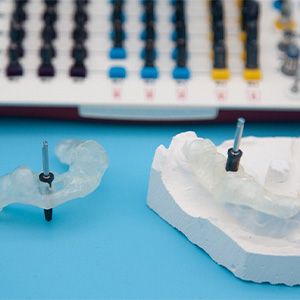
Instead of approximating where the best place to secure your dental implants into your jawbone is, our team will craft a guide to help with placement precision and ensure the best possible results. Using our 3D CT scan as well as specialized software, we’ll craft a custom surgical guide that we’ll use on the day of your procedure to carefully position the posts according to our plan.
Antibacterial Coating
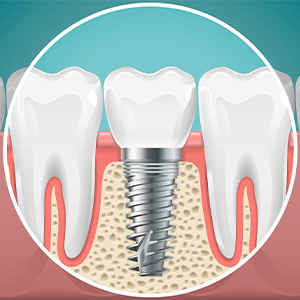
Our dental implants have an antimicrobial coating to help control and prevent bacterial infection, which is one of the top causes of implant failure. Studies have shown that these coatings can effectively control bacteria while maintaining the implants’ biocompatibility to help improve the success rate of dental implant treatment.
Dental Implant Salvage

Dental implants are known for maintaining an incredibly high success rate, averaging about 95% and remaining healthy and solid for 10+ years! There is always a chance that your dental implant could still fail, however, even though it is extremely rare. If you notice any problems with your dental implant or it starts to feel uncomfortable, give us a call as soon as you can. There’s a chance we could save your tooth replacement through dental implant salvage.
Learn More About Implant Failure and Salvage
Dental Implant FAQs
How Long Does the Implant Process Take?
There is no general timeline for dental implants because each treatment plan is based on the individual patient’s needs. While some can complete the implant process in six months, others may take a year from the initial consultation through to final restoration. When we meet with you at your consultation and have had the opportunity to examine your mouth, we should be able to project an estimated calendar and help you know what you can expect moving forward.
Is There Anything I Shouldn’t Eat with Dental Implants?
One of the many perks of replacing your missing teeth with implants is that you regain a strong bite. Consequently, there are very few foods that are off limits. These rare exceptions include chewing on ice or popcorn kernels or other hard, crunchy foods that put your teeth under excessive stress. Keep in mind that this dietary freedom comes after the implants have fully fused with the jawbone. Before your implants are ready for their restorations, you need to be careful and eat softer foods, like oatmeal, yogurt, and mashed potatoes, to allow the sites to heal properly.
Does Getting Dental Implants Hurt?
Patients do not feel the placement surgical procedure because a strong local anesthetic is used to numb the area. As a result, you should not feel any discomfort while you’re in the chair. After the anesthetic has worn off later on, you may feel some soreness at the site; however, over-the-counter pain reliever and cold compresses should be able to manage and reduce your discomfort. If you experience severe pain, a fever, or other unusual symptoms, you need to contact our team right away as these could be signs of complications, although these are rare.
How Can I Make Sure My Implants Are Successful?
Did you know that dental implants are successful in over 95 percent of cases? Even years after placement, the strong majority are still functioning and looking well. However, failure can occur. Although implants are not vulnerable to decay, you need to properly maintain your implants to set yourself up for success in the long term. Every day, you need to brush and floss your replacement teeth, just as you would natural teeth. Regular dental checkups and cleanings are also essential. In addition, making smart lifestyle choices, such as eating a balanced diet and drinking water more than other beverages, can make a significant difference in the success of your implants.
Maintaining & Caring For Your Dental Implants

Your new dental implants are designed to keep up with your lifestyle and make it easy to enjoy the foods you love. In order to keep them healthy for years to come, you’ll need to keep a few precautionary steps in mind going forward. Our periodontists are prepared to go over these maintenance tips with you directly so you can start protecting your implants as soon as they are restored. However, if you’d like to start learning today, take a look at the most important steps to know on our website!
Make Oral Hygiene a Priority

Dental implants should be treated just like natural teeth in terms of at-home oral hygiene. Brushing them twice a day and flossing them daily will prevent plaque buildup over time. While the restoration cannot develop decay, the gum tissue surrounding the implant and restoration can become infected, resulting in gum disease and even loss of the implant in severe cases. For these reasons and more, maintaining a strict oral care routine at home is vital.
Eat a Healthy Diet

Certain foods are more likely to contribute to plaque development than others, particularly foods high in sugar and starch. If you want to protect your dental implants (and oral health) to the fullest, getting a healthy balance of fruits, vegetables, proteins, and dairy products daily is always a good habit to have. If you aren’t drinking enough water, you’ll also need to make a habit of doing so to ensure healthy saliva production. Saliva is a key component of reducing the amount of harmful bacteria in the mouth.
Break Bad Habits

There are certain habits you’ll want to avoid, whether you have dental implants or not. Not only can these habits damage the restoration attached to the implant, but the titanium post inside your jaw can also be put at risk. The most important habits to break following your dental implant treatment include:
- Smoking or using tobacco
- Drinking alcohol in excess
- Biting or chewing your fingernails
- Chewing on hard or inedible objects or materials, such as pens, pencils, and ice cubes
- Using your teeth as a tool (i.e. to open packages)
Protect Your Dental Implants

Wearing a mouthguard when playing contact sports is vital to preventing damage to your tooth replacement. If you play a sport where the risk for sudden impact is high, such as football, basketball, baseball, soccer, hockey, or another activity, you should get a custom mouthguard as soon as possible. Similarly, if you grind your teeth at night, a nightguard can provide cushion between your teeth, preventing the risk of fracture or damage to the implant post.
Schedule Regular Dental Checkups

Once your implant has fully healed and the restoration is attached, you’ll need to have it examined periodically by a dentist. Our office wants to make sure that no complications have developed since your tooth replacement was placed and confirm your at-home oral hygiene is working to keep it healthy. If you need to make adjustments to your routine, our team will be ready to help. We’ll also perform a detailed cleaning in case any plaque was missed (or if tartar has developed).
Dental Implants Post-Op Instructions
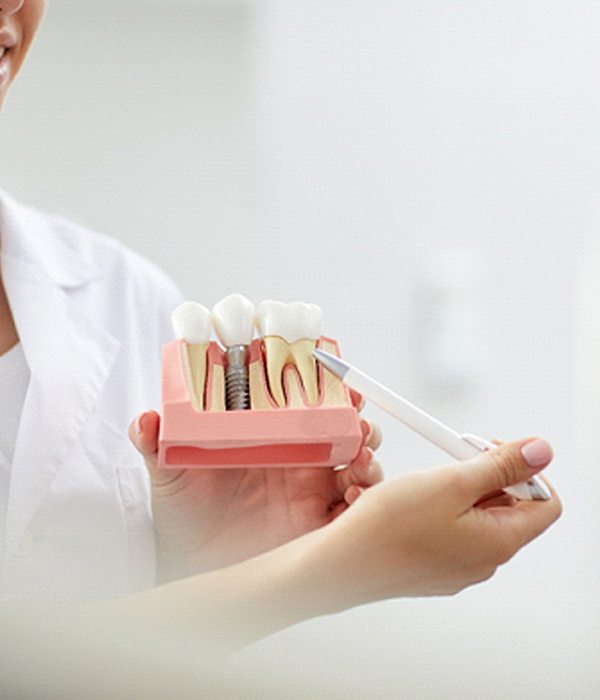
After your dental implants are placed, you’ll need to take a few steps to prevent any complications and ensure the most successful healing period possible. Dental implants do require minor oral surgery to receive, which means you’ll need to take it easy as your mouth recovers. The good news is this process is relatively short-lived and straightforward, even for those receiving multiple implants. Take a look at our recommendations below to get started!
What to Do Directly After Dental Implant Surgery

When our team asks you to bite down onto a gauze pad, it’s so the treated area can begin forming a blood clot after the implant is placed inside of the mouth. It is vital that this clot forms and does not become loose or fall off. To prevent this, make sure to avoid:
- Spitting, especially with force (use tissues to catch excess saliva. You can also simply swallow it).
- Using straws (as the suction required to use them can loosen the clot).
- Smoking or using tobacco, especially the first day after surgery.
- Touching the treatment area with your fingers or tongue.
Common Side Effects

Some mild side effects are a normal part of the healing process, especially the following:
- Intermittent bleeding – this can be reduced with gentle pressure to the treatment site using a gauze pad. It’s normal for light bleeding to occur over the next couple of days.
- General discomfort – Manage this using pain medication, whether it’s over-the-counter or prescribed from our office.
- Facial swelling – This can last for three to five days and can be relieved with cold compresses.
Diet

Sticking to softer, non-abrasive foods are the best thing for your dental implant following surgery. Some common foods we recommend include:
- Yogurt
- Smoothies (no straw!)
- Applesauce
- Scrambled eggs
- Cold or lukewarm soup
- Mashed potatoes
- Soft-cooked pasta
- Ice cream
- Pudding
Basically any foods that do not require a lot of chewing are the most ideal. Over time, you should be able to reintroduce certain foods to your diet as your implant site heals.
Health & Oral Hygiene
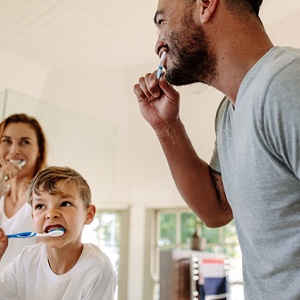
You can brush the day after your surgery, but you’ll need to use extreme caution around the implant site. Flossing is also perfectly fine, just keep away from the implant site over the next several days. To clean your mouth, consider rinsing it with a saltwater mixture two to three times a day. You may also use a prescription mouthwash recommended by our office. Do not use any mouthwashes that contain alcohol.
What to Do After Your New Teeth Are Attached

Once you’ve gone through the first several days to couple of weeks after dental implant surgery, you should be happy to know that the hardest part is over! When your tooth replacement has healed completely, you’ll come back to our office to have your permanent crown, bridge, or denture attached. It’s normal to experience some minor sensitivity in the gum tissue around the implant after this appointment. However, there should be no swelling, bleeding, or extensive recovery necessary.